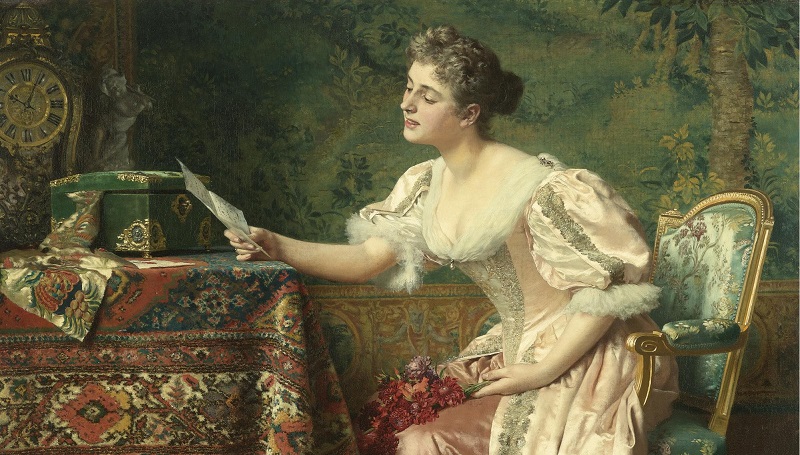.
My Sonnet as Texted
Her face, uplit as she scrolls through her phone,
no feelings shown, she wears light like a mask.
Have we two lives we share? Is each one’s own?
Afraid that I know, I’m too scared to ask.
I stay in shadows, silent, statue still,
and watch her phone’s glow wash across her face.
A dancing light, love alters course at will;
at whim, it changes distance, strength, and pace.
Her Facebook friends share their most liked new memes.
She stares intensely. She can’t know I’m here,
can’t know my fears, just theirs, their hopes, their dreams.
Remote though she appears, she stands so near.
My sonnet’s sent. She smiles. Shade turns to shine.
I’m part of her life while she’s all of mine.
.
.
An Economist’s Lament
Supply sets with demand through market laws
price equilibrium where their curves meet.
A hoary theory but it has its flaws—
on paper, perfect, messy in the streets.
So many years, together, happier days—
abundant, constant, valleys rare, few peaks,
supply priced love cheap. Easily I paid,
took her for granted, thought demand was weak.
Now pulled from me by Invisible Hands,
I’d pay all to be with her one more hour.
Supply’s reply—death doesn’t give a damn,
won’t yield a minute to the market’s power.
Demand without supply, need never ends;
forever she’s gone whatever I spend.
.
.
Carl Kinsky is country lawyer living in Ste. Genevieve, Missouri.















I love the fresh eye you bring to my favourite form. Thank you for these poetic treats, Mr. Kinsky. They’ve brought a broad smile to my Boxing Day.
Thanks. Sonnets rock.
I particularly enjoyed the first sonnet. So many truths and so much wisdom is encapsulated in our addiction to our ‘devices’.
Thanks for the reads, Carl.
Appreciate your comment. Seems strange though to be replying on my iPhone.
The first sonnet is a wonderful modern take on the classical topos of “the loved but unattainable lady.”
In the second sonnet, should the word “week” in line 8 be “weak”?
In this second sonnet, it seems that the speaker is using an economic conceit to allude to the death of a spouse or a long-term lover, and regrets having taken her presence for granted, now that “supply ” is gone for good. It’s quite unusual.
The first is for my wife who fortunately was attainable; the second’s for my late wife of 27 years. Thanks for catching the week/weak mistake A bit embarrassing.
Corrected… Mike the Mod
Two good love sonnets from two quite different perspectives. In both, I admire how rhythm plays out in the concluding couplet. In “Texted” the first line has three full stops indicating three quick stages of what’s happening, while the last line is perfectly flowing iambic satisfaction on the part of the speaker. In the “Lament” the first line is regular iambic pentameter, with just a comma to supply a slight pause. The second line alters the meter to tetrameter, as “ForEVer she’s GONE whatEVer I SPEND” has only four accents. I might have added a comma after “gone,” but I think you’re right to emphasize the contrast with the prior line in the rapid flow of this one.
Thanks for your observations, especially about the last line in “Lament”. The comma went in and came out many times before I decided against it. I hadn’t thought of the line as tetrameter but you’re right – it clearly is.
Nothing escapes Dr. Coats’ eagle eye. I hope you will get used to it as you continue to place your work here. You’ve got the right idea, and even if you hadn’t, new voices are always welcome.
In the second poem, the final couplet is somewhat vague. I know what you meant to say, but you didn’t quite say it. Part of the problem was that you ran out of metrical feet in which to express the idea, and the other part was the ends/spend rhyme, which is a compromise of the ideal. It was as though you gave up and stopped trying. There are nearly an infinite number of solutions to a given problem, and you could have tried harder to find the best one for you.
It’s not a bad poem, but it could have been a better one.
Never compromise!
Thanks for the helpful criticism. I’m not sure I agree, but it definitely gave me something to ponder.